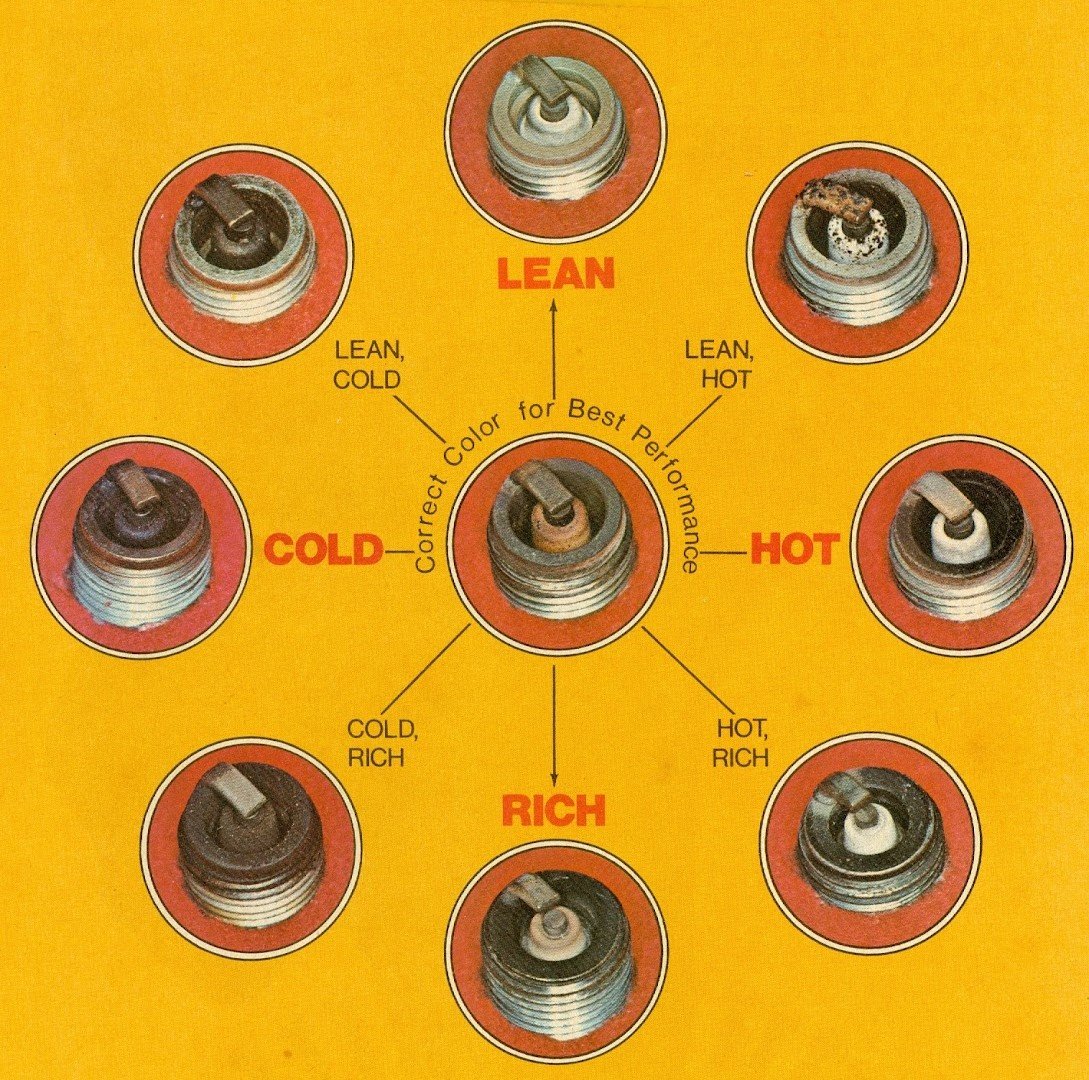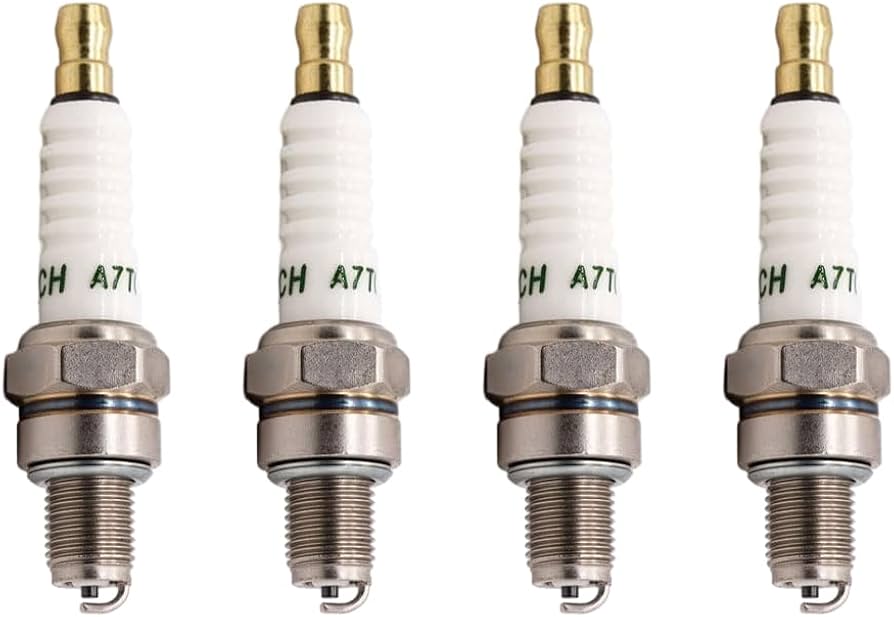Benefits of changing spark plugs include improved fuel efficiency, smoother engine performance, and better engine start-up. Replacing worn-out spark plugs ensures optimal ignition, reduces emissions, and helps extend the lifespan of your engine by preventing unnecessary strain on its components.
Spark plugs are small, but they play an important role in the performance of the vehicle. Over time, spark plugs wear out, which can lead to poor engine performance, reduced fuel efficiency, and even costly repairs. Regularly replacing your spark plugs is one of the easiest ways to maintain your car’s health and longevity.
In this article, we will discuss in detail why changing spark plugs is so important and how it affects your vehicle. From fuel efficiency to smoother engine operation, the benefits are clear. So, let’s dive into the essential reasons why you should keep your spark plugs in top condition.

Contents
What Are Spark Plugs?
Spark plugs are small, cylindrical components that ignite the air-fuel mixture inside your engine’s combustion chamber. They generate a small spark that ignites the mixture, which is what powers your engine. Over time, spark plugs can degrade due to the extreme heat and pressure they endure. When this happens, the ignition process becomes less efficient, leading to a host of potential problems.
The Top Benefits of Changing Spark Plugs
Changing the spark plugs is an essential maintenance task that can significantly improve your vehicle’s performance and longevity. Below, we dive into the key benefits of replacing spark plugs and how it can positively impact your car’s efficiency and health.
1. Improved Fuel Efficiency
One of the primary benefits of changing spark plugs is improved fuel efficiency. Worn-out spark plugs can cause incomplete combustion, meaning the engine isn’t burning fuel as efficiently as it should be. As a result, your car uses more fuel to achieve the same performance, leading to higher fuel costs.
By replacing your spark plugs regularly, you restore proper ignition and combustion, which allows your vehicle to run more efficiently and consume less fuel. This small investment in spark plug maintenance can lead to significant savings at the gas pump in the long run.
2. Smoother Engine Performance
Old spark plugs can cause a number of engine performance issues. If the spark plugs are worn, they might not produce a strong enough spark, leading to engine misfires, rough idling, and hesitation during acceleration. This can make the driving experience feel uneven or sluggish.
Replacing your spark plugs ensures that the ignition system works optimally, leading to smoother and more responsive engine performance. A car with well-maintained spark plugs starts quickly and accelerates smoothly without the hesitation or roughness that can occur when spark plugs are in poor condition.
3. Reduced Emissions and Cleaner Exhaust
Inefficient combustion due to faulty spark plugs can increase harmful emissions from your vehicle. These emissions not only contribute to air pollution, but they can also cause your car to fail emissions tests, which could result in costly repairs or fines, especially if your vehicle is due for an inspection.
When you replace worn-out spark plugs, combustion becomes more efficient, which reduces harmful exhaust emissions. This is beneficial for the environment and ensures that your vehicle passes emissions tests with ease.
4. Better Engine Start-Up
Anyone who’s experienced a slow or difficult engine start knows how frustrating it can be. Worn spark plugs can cause poor engine starting, especially in cold weather. This is because the spark plug doesn’t provide the necessary spark to ignite the fuel mixture, resulting in a delayed or failed start.
New spark plugs ensure a quick and easy start every time you turn the ignition. You won’t have to worry about your car struggling to start, even in cold weather or after sitting idle for a while.
5. Longer Engine Life
Your engine is a complex system with many moving parts, and any inefficiencies can lead to premature wear and tear. When spark plugs don’t function correctly, they can cause incomplete combustion, which puts extra strain on the engine components. Over time, this additional stress can lead to engine damage and costly repairs.
Changing spark plugs on schedule helps to reduce this strain, allowing your engine to run more smoothly and last longer. By ensuring proper combustion, you minimize the risk of engine damage, which could extend the life of your vehicle.
6. Increased Power and Performance
Spark plugs play a direct role in the combustion process, which is responsible for generating the power that drives your car. Worn spark plugs can lead to a decrease in engine power, resulting in slower acceleration and reduced performance overall.
Replacing old spark plugs restores full power to your engine. You’ll notice improved acceleration, better throttle response, and a noticeable boost in overall performance.
7. Preventing Further Damage
Old spark plugs can cause more than just poor performance – they can also lead to other issues if left unchecked. For instance, if spark plugs become too worn, they can begin to erode, causing metal parts of the engine to degrade. Over time, this can result in the need for more expensive repairs.
By replacing spark plugs on time, you prevent further damage to the engine and its components, saving you from costly repairs in the future. It’s an easy and inexpensive way to ensure the long-term health of your vehicle.
8. Improved Fuel Combustion and Engine Efficiency
Spark plugs help maintain proper fuel combustion in the engine. When spark plugs begin to degrade, they can fail to ignite the fuel mixture efficiently, causing a decrease in engine efficiency. This inefficiency forces the engine to work harder, burning more fuel and generating more heat.
New spark plugs restore the combustion process, ensuring that your engine runs at peak efficiency. This improvement leads to better engine performance, smoother operation, and a more comfortable driving experience.
How Often Should You Replace Spark Plugs?
The replacement interval for spark plugs depends on your car’s make and model, as well as the type of spark plugs used. On average, most spark plugs should be replaced every 30,000 to 100,000 miles. Some newer models with platinum or iridium spark plugs can go longer between changes, while older models may need them replaced more frequently.
Check your vehicle’s manual for specific recommendations regarding spark plug replacement. Regular maintenance and timely replacement are key to avoiding performance issues and costly repairs.
Frequently Asked Questions
Here are some FAQs about the benefits of changing spark plugs –
1. How do I know when to replace my spark plugs?
Signs of worn spark plugs include rough idling, poor acceleration, misfiring, and decreased fuel efficiency. If you notice any of these symptoms, it’s time to replace your spark plugs.
2. Can I replace spark plugs myself?
Yes, replacing spark plugs is a straightforward task that can be done at home with the right tools and a bit of knowledge. However, if you’re unsure, it’s always a good idea to seek professional assistance.
3. How much does it cost to replace spark plugs?
The cost of replacing spark plugs varies depending on your vehicle and whether you do it yourself or have a mechanic perform the service. On average, it can cost between $100 to $200 for a professional replacement.
4. Can I drive with old spark plugs?
While you can technically drive with old spark plugs, it’s not recommended. Delaying replacement can lead to poor performance, increased fuel consumption, and potential damage to the engine.
5. Do spark plugs affect engine performance?
Yes, spark plugs play a critical role in engine performance. Worn spark plugs can cause misfires, rough idling, and poor acceleration, while new spark plugs restore optimal performance.
Conclusion
Changing the spark plugs is a small but essential task that can make a big difference in your vehicle’s performance. Whether it’s improving fuel efficiency, ensuring smoother operation, or extending the life of your engine, the benefits of replacing spark plugs regularly are undeniable. Make sure to follow your vehicle’s maintenance schedule and replace the spark plugs when needed. By doing so, you’ll keep your engine running smoothly and save yourself from costly repairs down the road.





